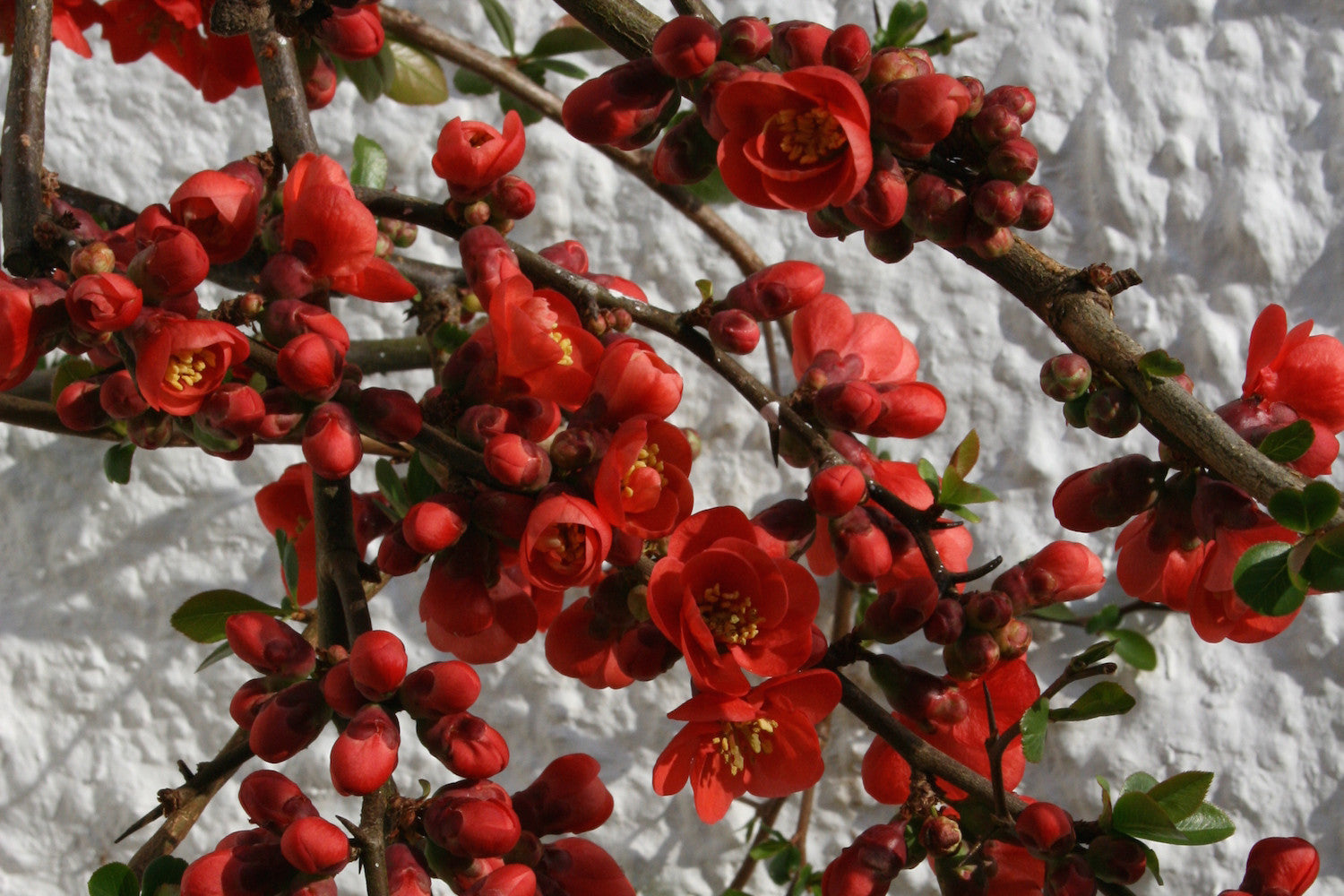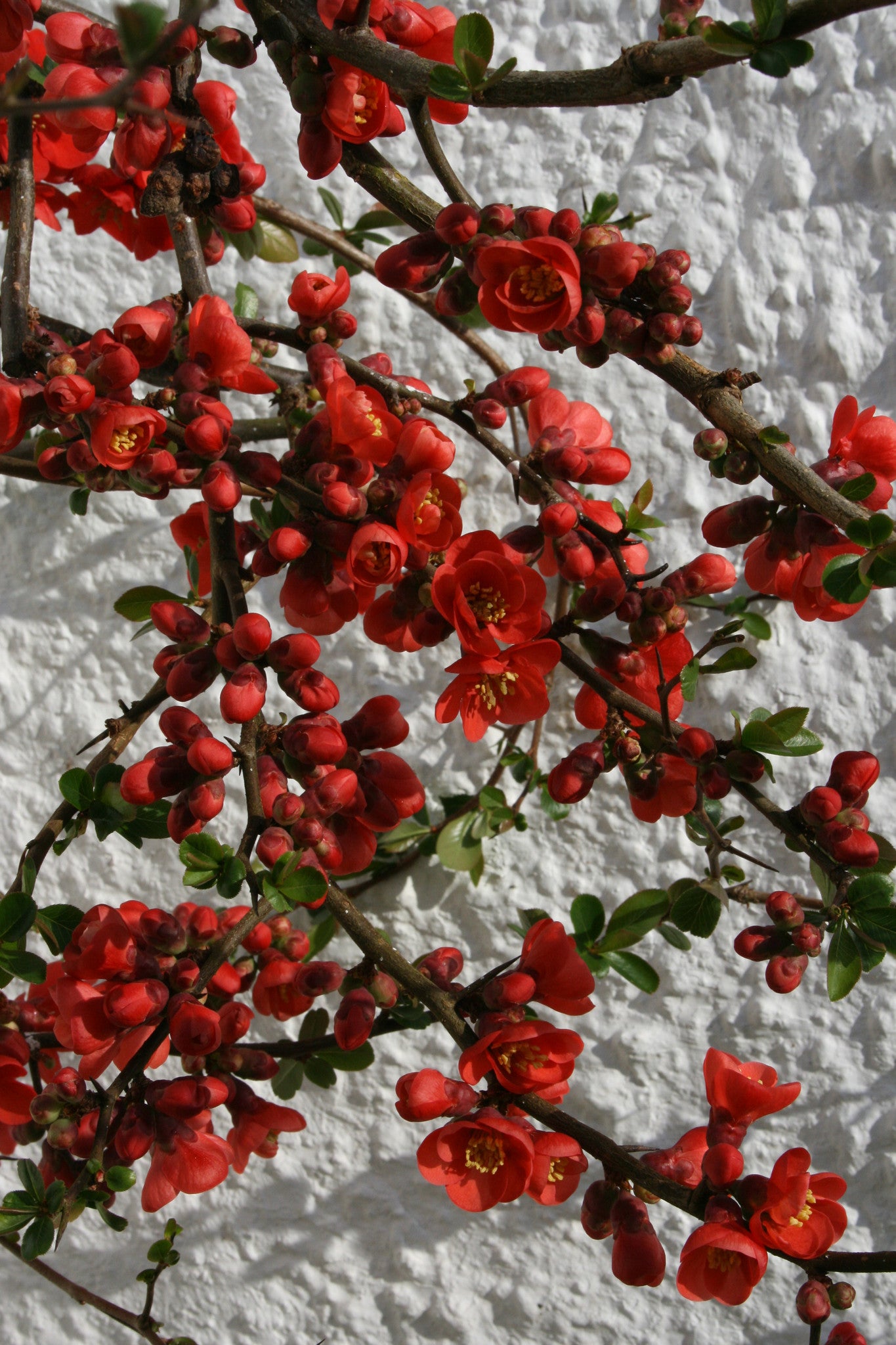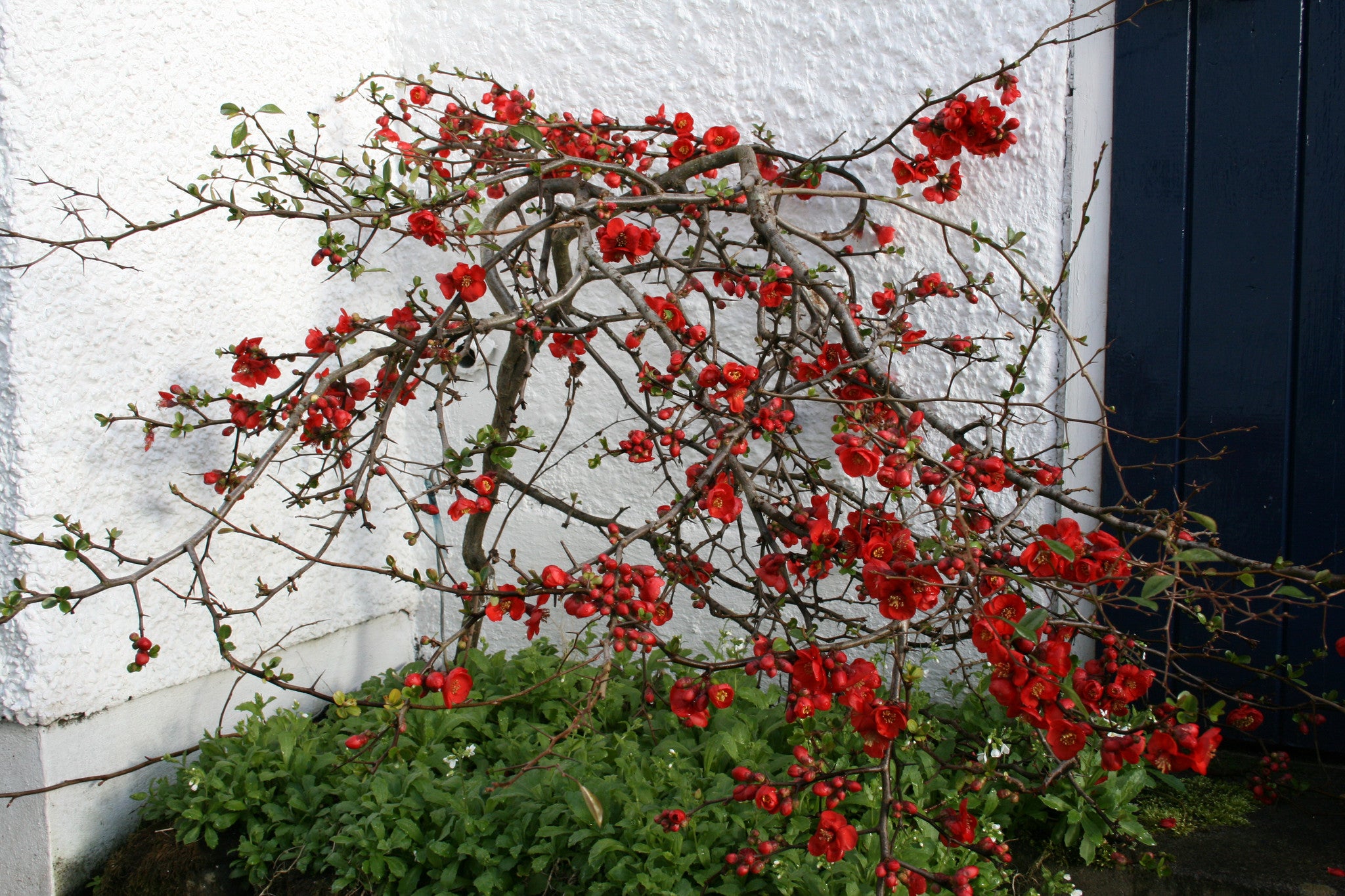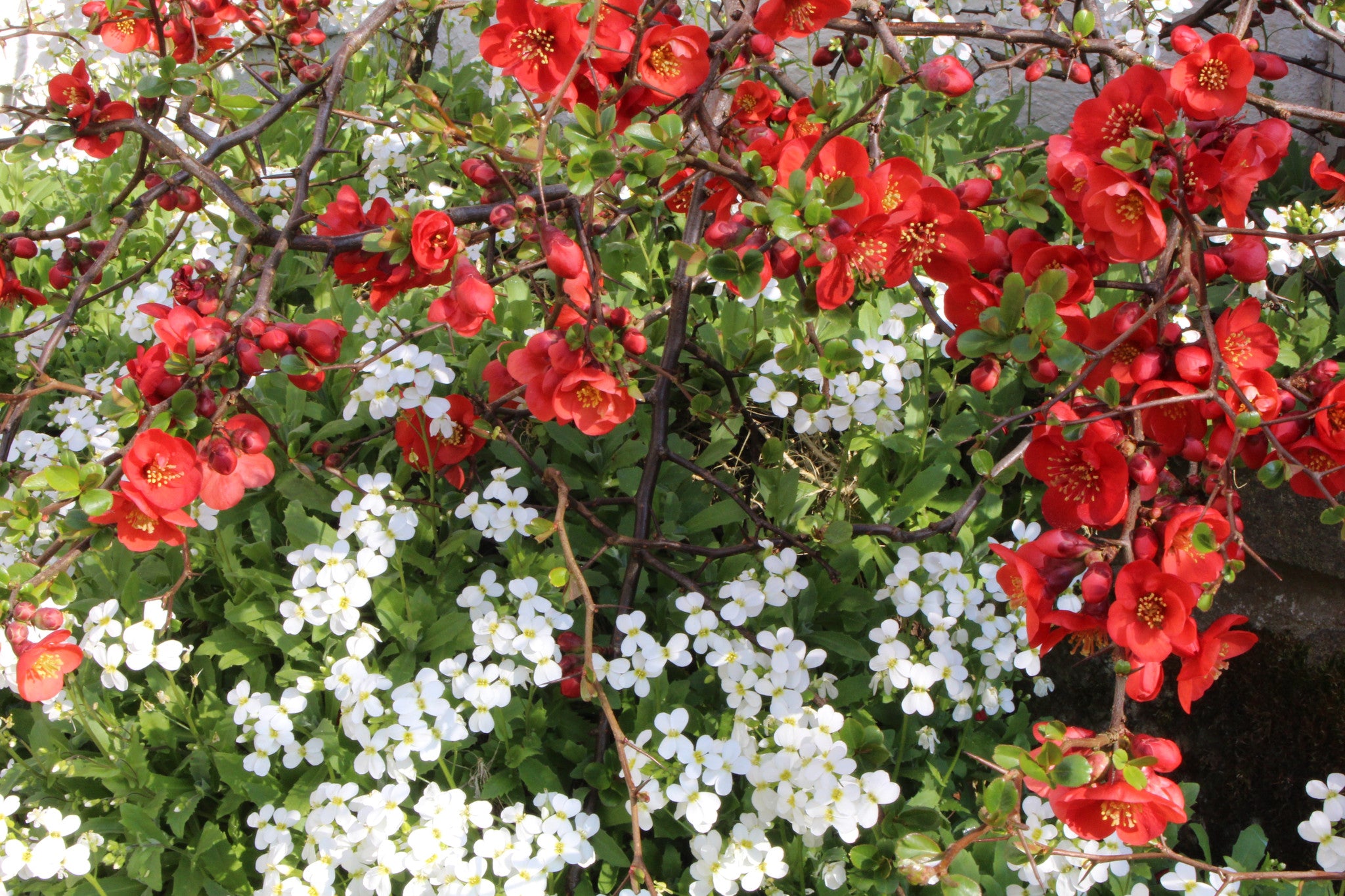Chaenomeles x superba 'Knap Hill Scarlet'
Approx. 0.5 litre pot
About this cultivar:
Chaenomeles × superba 'Knap Hill Scarlet' is a Victorian introduction from the late Anthony Waterer (1822-1896) that grows quite low and has scarlet red flowers followed by yellow fruits. My favorite quince - brightens up our shady backdoor area!
- Position: Full sun, partial shade
- Soil: Almost any soil, grows well in Ballyrobert
- Flowers: March, April, May
- Other features: Grows well in Ballyrobert, Bees and Butterflies
- Hardiness: Fully hardy - grows well in Ballyrobert!
- Habit: Bushy
- Foliage: Deciduous
- Height: 120 - 240 cm (4 - 8 ft)
- Spread: 120 - 240 cm (4 - 8 ft)
- Time to full growth: 10 to 20 years
- Plant type: Shrub
- Colour: Red, green
-
Goes well with: Anything (in my opinion). try Erigeron, Geranium, Nepeta, Perovskia, Dianthus.
About this genus:
Chaenomeles is a genus of three species of deciduous spiny shrubs, usually 1–3 m tall, in the rose family (Rosaceae). They are native to Japan, China, Bhutan, and Burma. The name comes from Greek chainein meaning to split and melea meaning apple in reference to a one time mistaken belief that the fruit produced by this shrub was split into five parts. These plants are related to the quince, differing in the serrated leaves, and in the late winter/early spring flowers that have five petals, and are usually bright orange-red, but can be white or pink.
Although all quince species have flowers, gardeners often refer to these species as "flowering quince", since Chaenomeles are grown ornamentally for their flowers, not for their fruits. These plants have also been called "Japanese quince", and the name "japonica" (referring to C. japonica) was widely used for these plants in the 19th and 20th centuries. Blame Joseph Banks as he introduced the shrub as Pyrus japonica at the end of the 18th century.
In general Chaenomeles are easily grown in most conditions and soils but thrive in well-drained soil in full sun to part shade. Like most 'fruits' the best flowering occurs in full sun. Unlike apples, avoid heavy pruning.
Where to grow these plants? They tend to be used as wall shrubs or open bushes and are particularly useful for those who cannot grow camellias. In our garden we have one (Geisha Girl) trained along the potting-shed wall espalier-style in full sun - it looks great with Clematis growing through it. We also grow another (Knaphill Scarlet) at our back door where it gets almost no direct sunlight - just rays reflected of the other walls. Both flower profusely! However, you don't need to plant them by walls - we haven a few as open bushes in the garden.
------
We only sell this genus (Chaenomeles) exclusively to the UK!








